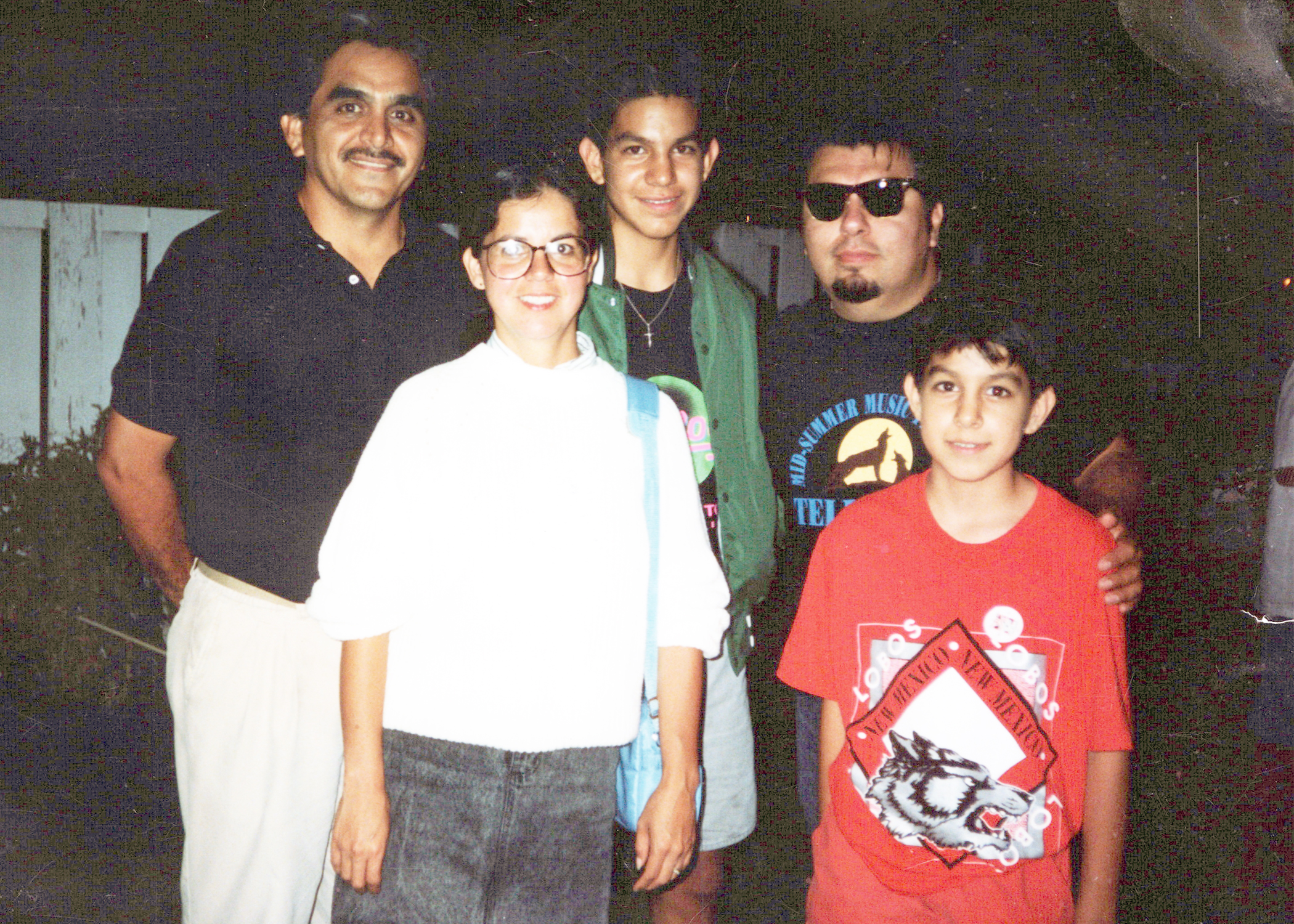Rivera family endowment celebrates the history and culture of Mexican Americans in the Midwest
November 17, 2023 - Karessa Weir
When Javier and Diego Rivera were growing up in East Lansing, they were surrounded by both their parents’ activism and the knowledge that being Mexican American in Michigan was something special.
“We saw Cesar Chavez at Cristo Rey, and on campus,” Javier remembered from his home in Arvada. He went on medical missions with his father Pedro, a physician, and heard the stories of life at MSU in the 1970s from him and his mother, Diana, librarian emeritus for Chicano/Latino Studies at the MSU Libraries.
“They lived activism with and through us,” said Diana Rivera. “In that sense, that was just part of their growing up. There was the power and promise of a Chicano Studies program that was being supported in this fashion - that’s how and where we added and can continue to add to the conversation. This is how we contribute to the story of Mexican-American culture in Michigan.”

The Rivera family from left: Dr. Pedro Rivera, Diana Huizar Rivera, Diego Rivera and Javier Rivera pictured with Cesar Rosas of the musican band Los Lobos at the Michigan Festival at MSU in 1991.
The Diana Huizar Rivera and Pedro Rivera, DO Mexican American Culture Endowment (MACE) is designed to support events that highlight the unique qualities of the Mexican American culture, especially in the Midwest.
The Endowment recently supported a captivating talk by Jorge Zamanillo, the visionary Director of the Smithsonian National Museum of the American Latino. Zamanillo shared his remarkable journey from his early days as an archaeologist in Miami to becoming the driving force behind the establishment of this groundbreaking Museum established by Congress in December 2020. This event was hosted by the MSU Museum and held at the WKAR Studios in honor of Hispanic Heritage Month and cosponsored by Chicano/Latino Studies.
“The endowment is truly a labor of love,” Diana Rivera said.
All the Riveras - Pedro, Diana, Javier and Diego - studied at Michigan State University. Pedro taught at the School of Osteopathic Medicine and Diana established the Map Library and Cesar E. Chavez Collection at the MSU Library.
Pedro grew up in Sparta, Michigan and Diana grew up in Pinconning, Michigan. They met at MSU in the 1970s. They were the first in their family to attend and graduate college, with Pedro earning a BS in Math and a DO degree in Osteopathic Medicine from MSU. Diana graduated with a BA from MSU and a Masters of Library Science from University of Michigan. She completed her PhD. coursework in Chicano and Latino Studies with a focus on the Latino in the mystery novel and the cultural imprint of the Mexican on the Michigan landscape.
The couple were among the early student leaders of the fight for Chicano Studies at MSU, and both continued to support the cause throughout their lives. Pedro died in 2001.
Javier Rivera studied English at MSU, has a lifelong interest in film studies and is now a Denver gaming entrepreneur and embedded firmware engineer. Diego Rivera is the director of Jazz Studies and Associate Professor Jazz Saxophone at the University of Texas, Austin.
He shared his memories of his father at the MSU Museum event:
“Pedro Rivera is a name that is odd for me to say, because children generally don't address their parents by their first and last name. And for his children, it was easy for us to look at him and consider him to be our role model and our hero.
“As an osteopathic medical student at MSU, he began a lifelong commitment to volunteering in the Mexican American community in Lansing which would have an effect beyond the city and for future generations.
“Dr. Rivera was honored with the Upjohn Award for Community Service when he graduated from MSUCOM in 1978, he then moved first to Arizona for service in three small satellite clinics for the U.S. Public Health Service.
“As one of 10 children of migrant farm workers, Dr. Rivera volunteered at the Cristo Rey Health center in Lansing for nearly a decade, serving as medical director for a portion of that time.
“When I was about 14 years old, I traveled with him to the Yucatan Peninsula to provide healthcare to the Mayan community of the Yucatan through an international osteopathic service organization called DO-Care. That was one of the most memorable experiences in my lifetime, where I got to see the dramatic differences in the existing Mayan medical care and what my father and colleagues were able to provide to the Mayan community.
“At Blue Care Network, he was known for his exemplary skill in osteopathic manipulative medicine, which earned him recognition in the field of sports medicine culminating in his appointment as a physician for the Lansing Lugnuts inaugural baseball season. And he was recognized by the college in 1996 as the recipient of the Dean's Alumni Community Service Award.”
In addition to the Mexican American Culture Endowment (MACE), the family has also help set up an annual medical school scholarship in memory of Pedro Rivera at the College of Osteopathic Medicine.
They hope to continue to provide other cultural events to celebrate Mexican American culture.
“The endowment’s purpose is to continue conversations and to program around Mexican Americans, Chicanos and Latinos in Michigan and the Great Lakes area,” Diana said. “Mexican-American culture in Michigan has not always been explored or celebrated at MSU. We are hoping this endowment will help with that conversation.”

